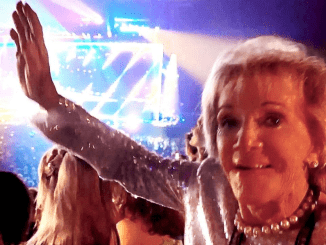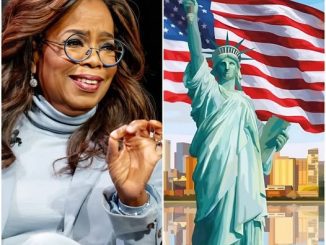
The Battle for Women’s Sports Intensifies: Riley Gaines Challenges J.K. Rowling’s Controversial Views
The debate over women’s sports has taken another dramatic turn as former NCAA swimmer Riley Gaines publicly challenges the views of acclaimed author J.K. Rowling. While both are vocal advocates for women, their differing perspectives on transgender inclusion in sports have sparked a heated discourse, further intensifying the broader cultural debate.
Riley Gaines’ Stance
Riley Gaines, who has been a prominent figure in the fight for fairness in women’s sports, argues that allowing transgender women to compete in female categories undermines the integrity of competition. Gaines, a former University of Kentucky swimmer, has frequently voiced her concerns, citing instances where she competed against athletes like Lia Thomas, a transgender swimmer who dominated several NCAA events.

In a recent interview, Gaines criticized Rowling’s nuanced stance on transgender issues. “While J.K. Rowling has done tremendous work advocating for women’s rights, her position on transgender inclusion in certain areas, including sports, lacks a clear commitment to fairness,” Gaines stated.
J.K. Rowling’s Perspective
J.K. Rowling, best known for her Harry Potter series, has become a polarizing figure due to her outspoken views on gender and women’s rights. While Rowling has consistently argued for the importance of protecting women’s spaces, her position allows for some inclusion of transgender individuals under specific conditions.
Rowling’s perspective has earned her both praise and criticism. She has faced backlash from LGBTQ+ advocates while garnering support from those who share her concerns about safeguarding women’s rights. However, her willingness to engage in dialogue with various stakeholders has left activists like Gaines wanting a firmer stance on the sports issue.
The Growing Rift

The disagreement between Gaines and Rowling highlights the complexities of the ongoing debate over transgender inclusion in sports. While both advocate for women’s rights, their approaches differ significantly:
- Gaines focuses on biological distinctions, emphasizing the physical advantages that transgender women may have over cisgender women in competitive sports.
- Rowling acknowledges these concerns but suggests that broader societal solutions may exist without outright exclusion in all cases.
This nuanced divergence has turned their advocacy into a public debate, drawing attention from media, sports organizations, and activists.
The Reaction
Fans and critics alike have weighed in on the growing tension. Supporters of Gaines argue that her firsthand experience as a competitive athlete gives her the authority to demand stricter rules on eligibility in women’s sports. “She’s standing up for fairness,” one social media user wrote.
Meanwhile, Rowling’s fans defend her approach, calling it a more inclusive and diplomatic strategy. “Rowling isn’t anti-women’s sports; she’s pro-discussion and solutions,” another commenter added.
The Broader Implications
The clash between Gaines and Rowling is emblematic of the larger cultural and policy debates happening worldwide. Sports organizations, from the NCAA to the International Olympic Committee, are grappling with how to balance inclusion and fairness.
For many athletes, the stakes couldn’t be higher. Women like Gaines see their careers and legacies impacted by these decisions, while others emphasize the importance of inclusion for transgender athletes striving for recognition and opportunity.
What’s Next?
Gaines has called for Rowling to join her in a public forum to discuss their perspectives, stating, “We both want what’s best for women. Let’s find common ground or, at the very least, understand where we differ.”
Rowling has yet to respond to this invitation, but the ongoing public discourse shows no signs of slowing down. Whether this leads to a productive dialogue or further entrenched divisions remains to be seen.
A Defining Moment for Women’s Sports
As the battle for women’s sports continues, figures like Riley Gaines and J.K. Rowling play pivotal roles in shaping the conversation. While their views may differ, their shared commitment to advocating for women ensures that this debate will remain front and center in the cultural landscape.
The world now watches as sports organizations, policymakers, and cultural leaders navigate this contentious issue, with the future of women’s sports hanging in the balance.


